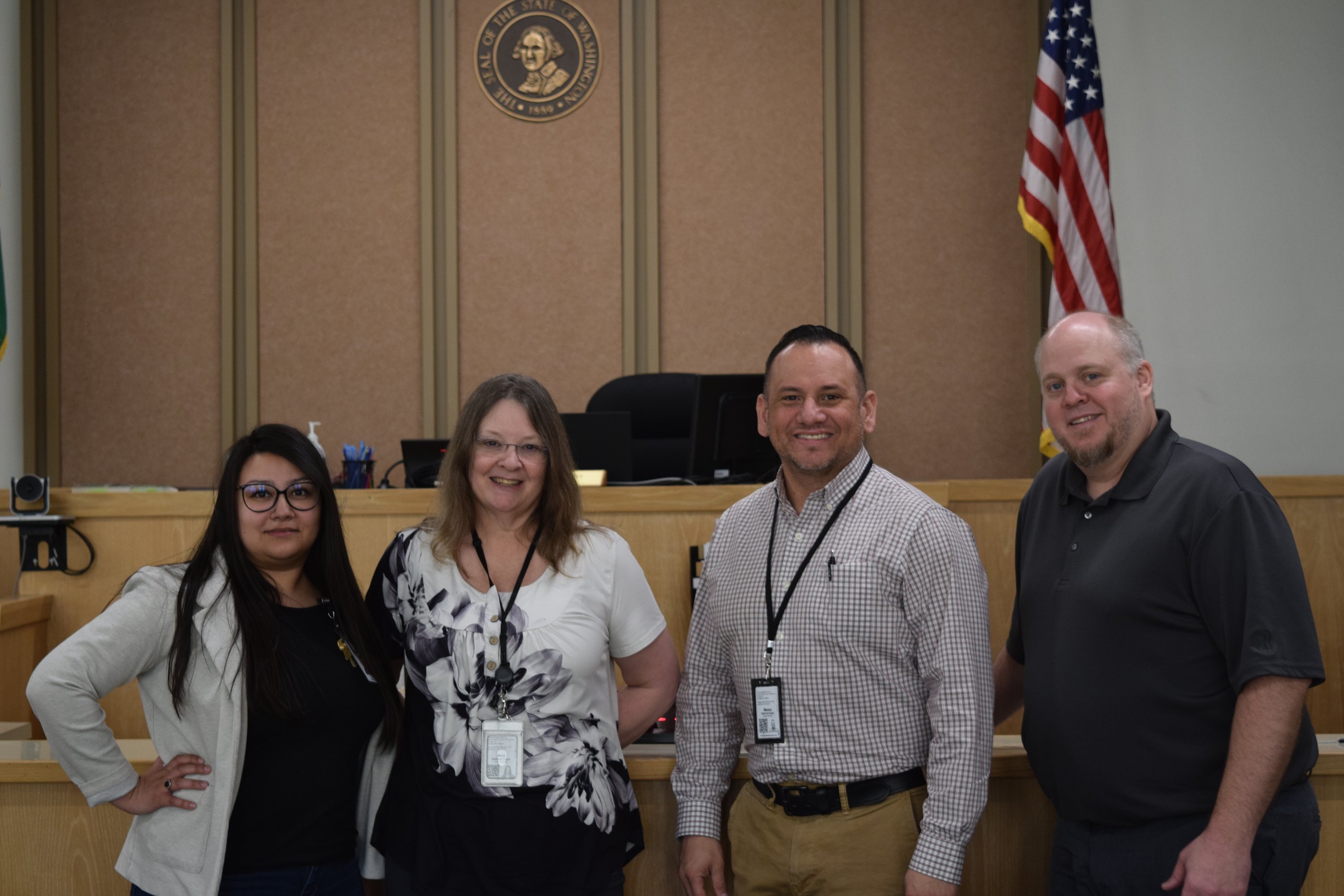Grant Co. Community Court reaches first year
EPHRATA — Grant County has its share of repeat offenders who can be considered proverbial frequent fliers through the court system, but a program that began about a year ago works to help them land on firmer runways as they move through the system.
“We call it Community Court,” said District Court Judge Brian Gwinn. “We don’t pigeonhole us just to drugs. We also know mental health and drugs kind of go hand-in-hand, so we’re not just saying we’re a drug court … We take high-risk, high-needs people in the community that are wanting to get sober, right, and wanting to go a different way.”
The idea behind the court, Gwinn said, is to provide structure and consequences for those who want to live within the law but have some issue that pulls them in the wrong direction. That may be an addiction to drugs or alcohol, or it may be some other behavioral issue. Each person’s case is unique. However, when defendants are given structure and accountability to a court – including consequences such as community service or court-ordered homework – they can move past their challenges.
Grant County Community Court was initially funded by grant money from the Administrative Office of Courts through grant money. Since then, the program has grown with support from other grants and local organizations, Gwinn said.
The first soon-to-be graduate of the program Ernie Navarro, said Community Court has helped him get his life in order. He’d originally signed up for the county’s now-gone drug court program, but transferred into community court as his situation evolved.
“I signed up for it. They sent me to treatment and that did really good for me,” Navarro said. “It helped me realize some of the self-sabotaging things I was doing to myself.”
He said one of the best things about the program is the regular court visits which are set up differently than any other court process he’d seen before. While in the courtroom, the judge and his caseworkers showed a real interest in him, asked him how his week has been, followed up on his treatment programs, goals and other aspects of his case. He said they kept him focused on getting his life right.
Navarro said he’s been able to really improve his life and go from a mindset that led to poor decisions, to one that has him building a life for himself. He’s been able to repair his relationships with his family. He has a job where he gets to help animals at Grant County Animal Outreach, and he’s just generally happier than when he was in the cycle of being in and out of court for various reasons, usually associated with opioid or heroin use. He’s become the president of his sober house in Moses Lake.
Consequences are a real thing in the program, Navarro said. He missed a drug screening one week and was sentenced to four hours of community service.
During court on April 10, Gwinn sentenced multiple people to community service, assigned essays designed to get program participants to consider their mistakes and assigned one person to spend a day observing Superior Court as a reminder of the consequences of not following Community Court guidelines.
Support for the participants is there in the form of Community Court Specialists Alma Farias and Manny Garcia. The pair serve in a role that’s a mix of social worker, probation officer, guidance counselor, advisor and several other roles as participants move through the Community Court process, which takes about a year.
“The big thing is they sign a contract and they have to be with us for a minimum of 12 months,” said Amy Paynter, court coordinator for the program.
That year-long period is a chance not to be in jail for some of the participants. Most of their charges have a maximum sentence of a year in jail, but Community Court works toward rehabilitation while allowing the defendant to move their life forward.
Navarro said he’s gotten a driver’s license for the first time in years and having a job has given him purpose and helped him stay out of trouble.
Others have moved their lives forward similarly, Gwinn said.
It takes a lot of work to make that progress happen, Farias said. She works regularly with her clients to get them to appointments, help them work through problems that may seem overwhelming at the time and provide feedback to the Gwinn, defense counsel and the prosecutor on the cases she’s assigned to.
“And I do home visits and sometimes help them get to appointments,” Farias said. “So, as one person, it’s kind of a lot when someone might be in Grand Coulee and my other person’s in Othello.”
Garcia, who began the job about a month ago, said it is a lot to take on, but he’s excited to be able to help people pull their lives together.
“I’m honored and blessed to be a part of this program,” Garcia said. “And I’m going to do everything that I can to ensure that the program will continue for years to come.”
Navarro will graduate from the program April 24 and additional graduates are close behind, Gwinn said.
R. Hans “Rob” Miller may be reached at editor@columbiabasinherald.com.





